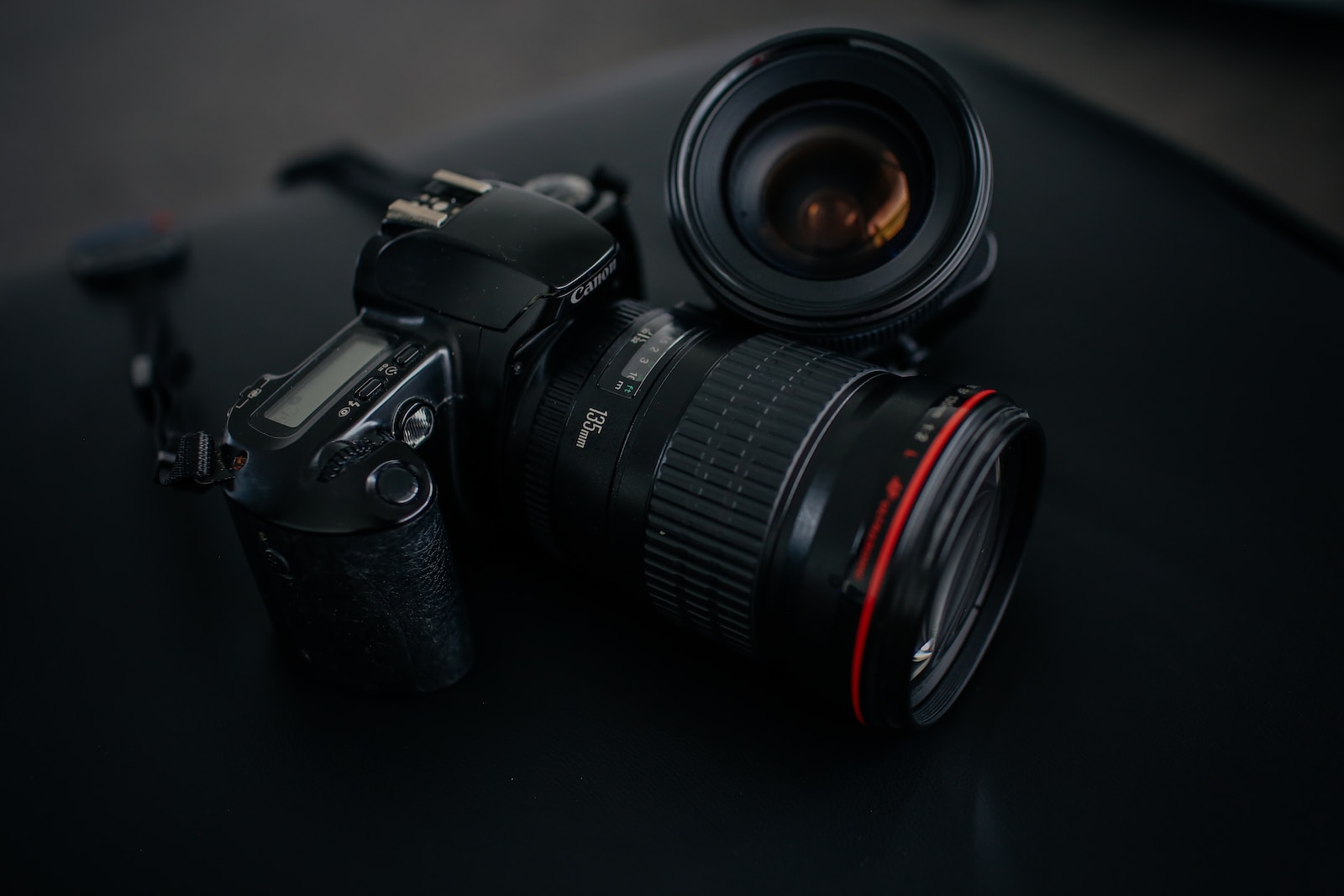Updated Models and Features for Beginners
2024 has introduced an array of cameras that are perfect for beginners, offering a balance of user-friendliness, quality, and innovation. Let’s explore some of the top picks:
- Mirrorless Marvels: The market has seen an influx of mirrorless cameras that are ideal for beginners due to their lightweight design and advanced features. Models like the “AlphaStream 24” offer excellent image quality and intuitive interfaces, making them a top choice for those starting out.
- Revitalized DSLRs: Despite the rising popularity of mirrorless cameras, DSLRs remain a steadfast choice for beginners. The “DigiSnap X1” is an example, providing robust build quality and exceptional battery life, coupled with user-friendly controls ideal for those learning the ropes.
- Point-and-Shoot Simplicity: For those seeking simplicity and portability, updated point-and-shoot models like the “PocketPro Lite” offer a great entry point. These cameras combine automatic shooting modes with quality optics, encapsulating convenience and quality in a compact form.
New Entrants in the Market
Emerging brands have made a splash in 2024, introducing beginner-friendly models that challenge the status quo. The “NovaClick S2” from a startup has gained popularity for its innovative features tailored for beginners, such as guided shooting modes and interactive tutorials built into the camera.
Budget-Friendly Options
Best Budget Cameras for 2024
Budget doesn’t have to be a barrier to quality photography. 2024 offers several affordable options:
- Economy Mirrorless: The “EconoMirror M10” stands out for delivering mirrorless technology at a budget. It compromises on some advanced features but retains essential functionalities like interchangeable lenses and decent autofocus.
- Affordable DSLRs: The “BudgetMaster T5” offers the traditional feel of a DSLR with a surprisingly low price tag. It’s an excellent choice for beginners who prefer an optical viewfinder and longer battery life.
Trade-Offs and Realistic Expectations
While budget cameras have improved, they may lack certain features like 4K video, ultra-high ISO ranges, or advanced connectivity options. Beginners should weigh these factors against their photographic goals and preferences.
Investing in Lenses and Accessories
Lens Selection for Beginners
Choosing the right lens is as crucial as selecting the camera body. Beginners should consider starting with a versatile zoom lens, which covers a range of focal lengths, making it suitable for various photography styles. As skills develop, investing in a prime lens for its superior image quality can be a great next step.
Importance of Quality Lenses
Investing in quality lenses can significantly impact the photographic results. High-quality lenses offer better sharpness, faster apertures, and more durable construction. They can also retain their value over time, making them a worthwhile investment.
Essential Accessories
Beginner photographers should consider essential accessories like a sturdy tripod for stability, a camera bag for protection, extra batteries, and memory cards. These accessories not only enhance the shooting experience but also protect the investment in the camera gear.
In conclusion, 2024 presents beginners with a diverse range of camera options, from advanced mirrorless models to budget-friendly choices. By understanding the trade-offs and investing wisely in lenses and accessories, beginners can embark on their photography journey with confidence and the right tools at their disposal.
Learning Photography Basics
The Foundation of Great Photography
While having the right gear is important, the essence of photography lies in mastering the basics. Understanding concepts like composition, lighting, exposure, and the rule of thirds is fundamental to capturing great images. The camera is merely a tool; the true artistry comes from the photographer’s knowledge and creativity.
Resources for Learning
- Online Courses: Platforms like Skillshare, Coursera, and Udemy offer a wide range of photography courses catering to all levels. These courses often cover everything from basic techniques to advanced editing.
- Workshops and Seminars: Local workshops, often held by experienced photographers, provide hands-on learning experiences. They can be more interactive and personalized compared to online courses.
- Photography Clubs and Communities: Joining a photography club or online community can be a great way to learn from peers, share experiences, and get constructive feedback.
Second-Hand Market and Sustainability
Advantages of Buying Used Cameras
Purchasing second-hand cameras not only saves money but also allows access to higher-end models that might be unaffordable when new. Many used cameras on the market are in excellent condition and can serve a beginner well.
Sustainability in Photography
Opting for second-hand gear is a step towards sustainability in photography. It extends the life cycle of cameras and lenses, reducing waste and the environmental impact associated with producing new equipment.
Future Trends
Emerging Technologies to Watch
The camera technology landscape is ever-evolving, and several trends could significantly influence beginner photographers:
- AI-Driven Photography: We’re likely to see more cameras with advanced AI capabilities, simplifying tasks like focusing, exposure settings, and even post-processing.
- Increased Connectivity: Future cameras might offer even more sophisticated connectivity options, integrating seamlessly with cloud services, social media platforms, and smart home devices.
- Lightweight and Compact Designs: As technology advances, cameras could become even more compact and lightweight without compromising on features, making them ideal for beginners.
Emerging Brands and Innovations
New players in the camera market are likely to emerge, bringing fresh perspectives and innovations. These may include more user-friendly interfaces, creative in-camera editing tools, or novel approaches to photography that challenge traditional norms.
In summary, while gear is important, understanding the basics of photography is key to capturing stunning images. The second-hand market offers a sustainable way to acquire gear, and the future of camera technology looks bright with potential advancements in AI, connectivity, and design. Beginners should keep an eye on these trends and emerging brands as they continue to explore the world of photography.
Conclusion
Embracing the Future of Photography as a Beginner
As we reflect on the landscape of photography in 2024, a few key takeaways emerge for beginners embarking on their photographic journey. Firstly, the choice of camera is significant, but it should harmonize with an eagerness to learn and grow in the art of photography. The gear should be a means to enhance creativity, not overshadow the fundamental skills of photography.
Key Takeaways for Choosing a Camera in 2024
- AI Integration: Modern cameras are increasingly equipped with AI, making photography more intuitive and user-friendly. This technology aids in automatic settings, subject tracking, and even post-processing, offering a significant advantage to beginners.
- Mirrorless Dominance: The shift towards mirrorless cameras continues, with these models becoming more accessible and affordable. Their advantages in size, weight, and technology make them an excellent choice for newcomers.
- Connectivity and Sharing: With enhanced connectivity features, sharing photos to social media or cloud storage has become easier than ever, allowing beginners to effortlessly showcase their work.
- Sustainability in Photography: The growing second-hand market for cameras not only offers budget-friendly options but also promotes sustainability in the photography industry.
- Emerging Brands and Features: New brands are bringing innovative features to the market, offering advanced yet user-friendly options for beginners. Keeping an eye on these emerging players can be beneficial.
Encouragement for Skill Development
As you select your camera and accessories, remember that your skill development is paramount. The camera is a tool to express your vision and creativity. Invest time in learning the basics, experimenting with different techniques, and continuously evolving your skills.


